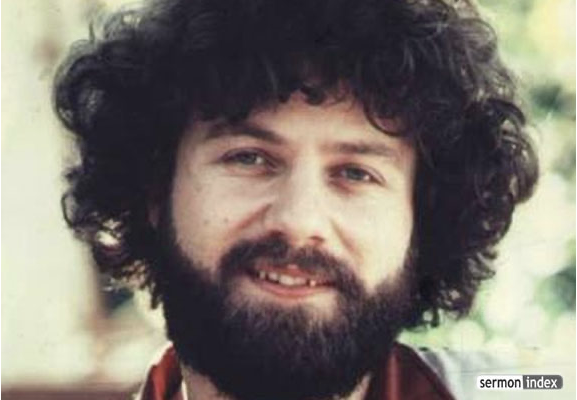Louie Vassalos has written a four-part series on being good for the sake of God. He aims to show that believing in God is necessary for us to be truly good. While this may sound obvious, many secular objectors argue that God’s existence does not matter in determining whether a person is good or not. The current article is part 4 of 4. Here is part one, two, and three.
Secular people often think that most religious systems do not vary greatly in their vision of attaining everlasting happiness. They assume that the followers of faith traditions attempt to comply with moral prescriptions that satisfy the demands of their respective deity (or deities). What constitutes good behavior in these different faiths is not all that different. Ideally, after all is said and done, religious persons are ushered to a higher realm of existence by the deity they served, provided they lived consistently within the parameters of their system.
Given the near universal longing for eternal life (or slightly less popular fear of eternal damnation), the prospect of a place that offers endless joy is attractive. It’s the quintessential motherlode. Consequently, virtuous behavior isn’t itself appealing: it’s the price of admission to the big payoff in the sky.
But are all religions basically the same?
Christianity’s Take on Goodness
Though piety and moral scrupulousness may be basic to practically all religions, Christianity is distinct in its view of human goodness and God’s grace. It recognizes man’s pursuit of goodness as elusive. Jesus himself said quite starkly, “no one is good except God alone” (Mk. 10:18b), as did the Apostle Paul (Rom 3:10-12). Given that this statement is true, what can we infer about the relationship between our goodness and God’s heaven?
Clearly, Christian teaching is at odds with any heroic notion of man’s ability to be good and of the sufficiency of his right conduct to merit heaven. If God alone is good – and people are not – we face a cosmic impasse: can we tie moral effort to eternal bliss?
The short answer is: We can’t.
Because human nature is inherently sinful we are born bound not to be good. One way or another the expression of our true nature emerges, even in actions that, on the surface, appear to be good. What the Bible refers to as “the heart” is a breeding ground for evil motives, thoughts, and actions (Matt 15:19-20a, Jer 17:9). Nothing good can be ascribed to it. But if that’s the whole story, then there’s no hope of heaven. How can Christians even wake up in the morning believing such a dismal state of affairs?
Thank God for Good News
Thankfully, in response to Paul’s despairing cry, “Wretched man that I am! Who will deliver me from this body of death?” (Rom 7:24), comes the redemptive portion of the story – the good news: “Thanks be to God through Jesus Christ our Lord! … There is therefore now no condemnation for those who are in Christ Jesus.” (Rom 7:25-8:1)
Jesus, God-incarnate, proclaiming an altogether different message, said “I am the way” (John 14:6). He didn’t declare “this is the way” (in reference to a set of teachings) that pointed his followers to an ethical system leading to eternal life.
He wanted us to know that he is the good that we could not be for ourselves and that trusting his goodness – not ours – is the only hope for heaven. Since human understanding of goodness is misguided and laden with ill-intent, only the demonstration of an alien love could save us: “God shows his love for us in that while we were still sinners, Christ died for us.” (Rom 5:8)
What of our being good for God then?
The Gospel’s Answer to Being Good
We see our moral condition quite differently when we look at it through Christian lenses. It’s a picture of us standing naked before our Maker with a record of crimes – replete with all the good we owed but withheld from him and our neighbor. Unless we come to realize that Christ alone is able to cover us with his perfect goodness we remain naked and guilty before the only true and unimpeachably just Judge.
Grasping the life-transforming implications of this truth means we don’t stand arrogantly expecting payment for all our hard work. Instead we bend our knee and bow our head; humbly thanking God for his ineffable grace. With no delusions of righteous grandeur, no basis for conceit, we may personalize the words of St. Paul: “For by grace [I] have been saved through faith. And this is not [my] own doing; it is the gift of God, not a result of works, so that [I] may boast.” (Eph 2:8-9) Where then does “doing good” come into the equation? The apostle continues: “For we are his workmanship, created in Christ Jesus for good works, which God prepared beforehand, that we should walk in them.” (Eph 2:10)
Though good works are clearly mandated by God they are subordinate to grace, regarding soteriology. They are the fruit of our redemption, not the source of it. God accepts us as sons and daughters because of Christ’s good work. His grace elicits our gratitude and our obedience, out of which goodness flows freely. Because God secures our benefits we needn’t be insecure about whether our conduct is measuring up – not that we are remiss in doing good. A preoccupation with score-keeping inclines us to fixate on ourselves. But if we’re already heirs of eternal benefits yet to be realized then we are liberated from our selfish motivations: to be truly good.
Putting the House in Order
In light of the foregoing considerations we must ask ourselves: Can a house built by atheism pass inspection?
It stands on a foundation of ethical standards that – after brushing aside the sophistry in the front yard – amounts to nothing more than individual preference. Lacking belief in God structures behavior to serve and please only the atheist himself. It is not constructed to support altruism. Even those believing in God for the sake of heaven are, likewise, open to the charge of self-interest. The gospel of Christ offers hope of deliverance from this house of cards. The only way out of being trapped under this crumbling edifice of self-centeredness is by placing our faith in Christ alone.
In his goodness we are finally set free to be good for God’s sake.




















